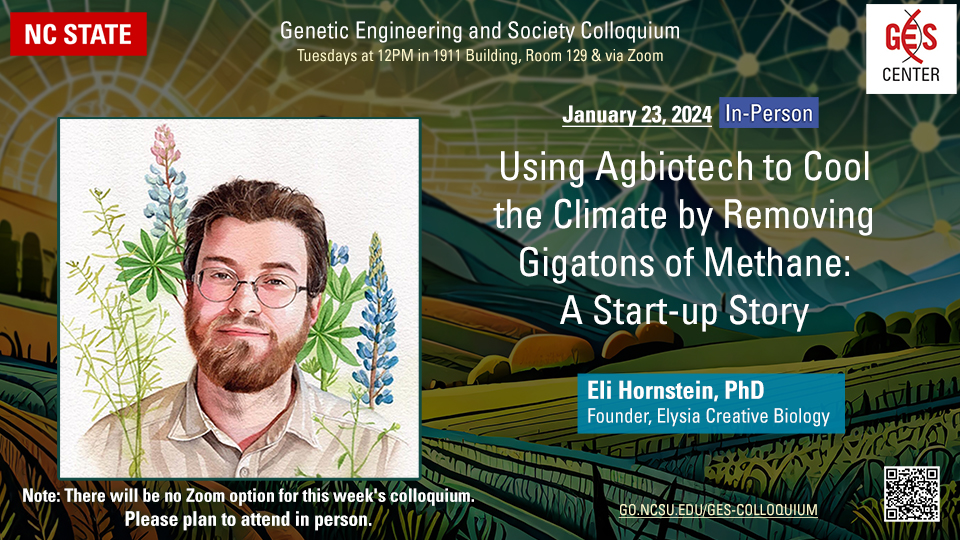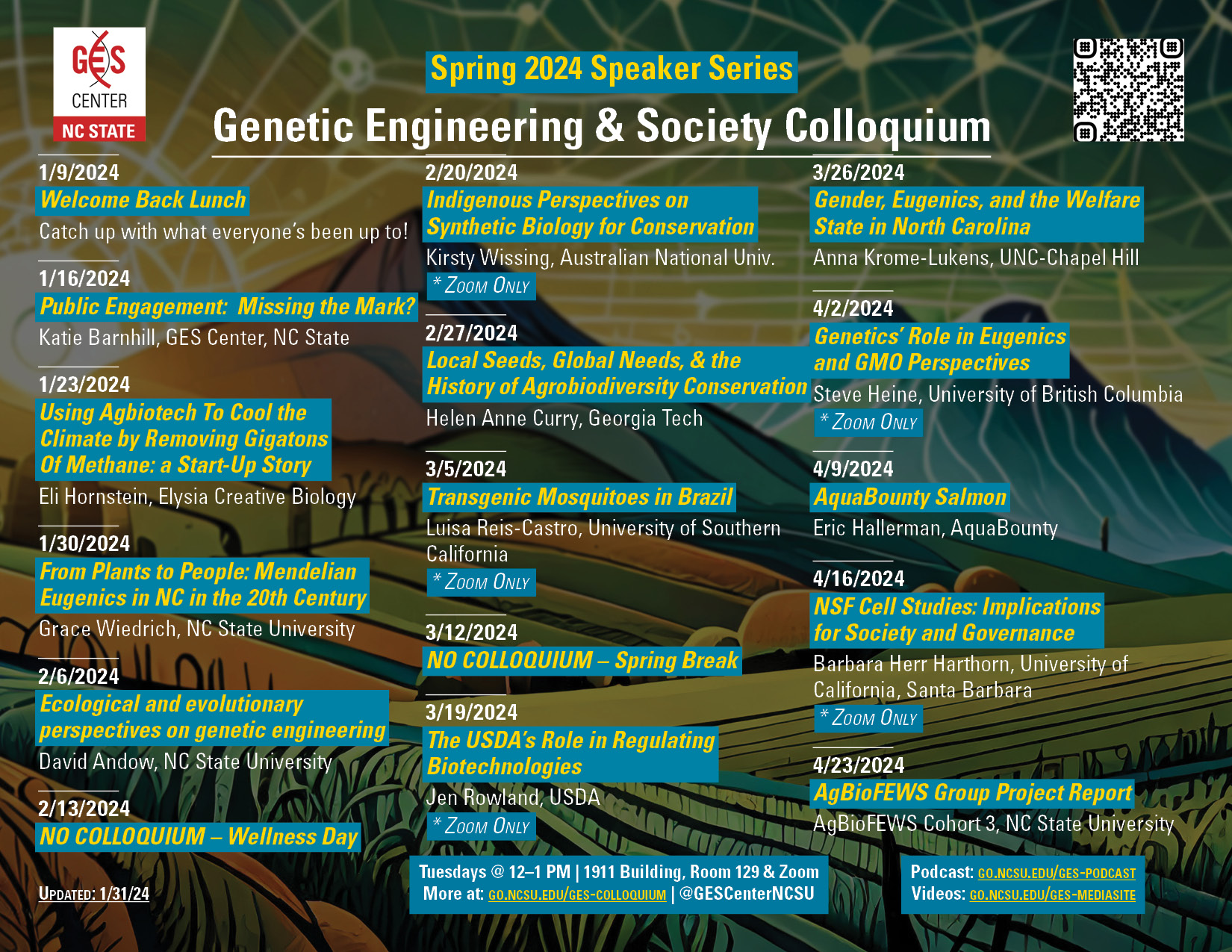
- This event has passed.
Eli Hornstein – Using Agbiotech to Cool the Climate by Removing Gigatons of Methane | GES Colloquium

Colloquium Home | Zoom Registration | GES Video Library (current) | Video Archives | Podcast | @GESCenterNCSU | Newsletter
Using Agbiotech to Cool the Climate by Removing Gigatons of Methane: A Start-up Story 
Eli Hornstein, Founder, Elysia Creative Biology | LinkedIn | Google Scholar
Animal feed is our number one use of agriculture; Elysia engineers all of those feed crops to vastly suppress carbon emissions from the animals that eat them.
Note: There will be no Zoom option for this week’s colloquium. Please plan to attend in person.
Download seminar poster
Abstract
Methane from livestock accounts for about 6% of global warming–more than shipping, air travel, and deforestation put together. These emissions result from digestion of feed by the animals, and are a pure waste product; it has been known for decades that with certain treatments we can eliminate almost all enteric methane emissions without losing any meat or milk. But almost no farms use technology to do so, because the treatments are expensive, hard to produce, and inconvenient for farmers to use in real-world settings. Elysia solves this by genetically engineering existing crop plants like corn and sorghum to produce anti-methane agents, in a way that is as cheap and seamless as buying the grain they already do and feeding to cows the way they always have. In my talk, we will have an interactive discussion about Elysia’s current and in-development technology, the commercialization process as a very early startup with a complicated biotechnology, and the social and regulatory factors that will determine whether our product becomes reality.
Speaker Bio
Dr. Eli Hornstein – A field conservationist turned genetic engineer, Eli believes that biotechnology holds the key to sustainable agriculture practices that benefit both the environment and real people. Recognizing the urgent need for action, Dr. Hornstein founded Elysia to develop commercially viable and practical biotech solutions designed to meet the growing demand for environmental stewardship within the agricultural sector.
GES Colloquium is jointly taught by Drs. Jen Baltzegar and Dawn Rodriguez-Ward, who you may contact with any class-specific questions. Colloquium will be held in person in the 1911 Building, room 129, and live-streamed via Zoom.
Please subscribe to the GES newsletter and LinkedIn for updates.
WordPress database error: [Unknown column 'wp_tec_occurrences.start_date' in 'SELECT']SELECT SQL_CALC_FOUND_ROWS wp_posts.*, CAST( wp_tec_occurrences.start_date AS DATETIME ) AS event_date
FROM wp_posts LEFT JOIN wp_term_relationships ON (wp_posts.ID = wp_term_relationships.object_id) LEFT JOIN wp_postmeta ON ( wp_posts.ID = wp_postmeta.post_id AND wp_postmeta.meta_key = '_EventHideFromUpcoming' ) LEFT JOIN wp_postmeta AS mt1 ON ( wp_posts.ID = mt1.post_id )
WHERE 1=1 AND wp_posts.ID NOT IN (19488) AND (
wp_term_relationships.term_taxonomy_id IN (149,521,802)
OR
wp_term_relationships.term_taxonomy_id IN (45,47)
) AND (
wp_postmeta.post_id IS NULL
AND
( mt1.meta_key = '_EventStartDate' AND CAST(mt1.meta_value AS DATETIME) >= '2026-03-03 18:18:37' )
) AND wp_posts.post_type IN ('post', 'page', 'attachment', 'tribe_venue', 'tribe_events', 'tribe_event_series') AND ((wp_posts.post_status = 'publish'))
GROUP BY wp_tec_occurrences.occurrence_id
ORDER BY event_date ASC, wp_posts.post_date ASC
LIMIT 0, 3
